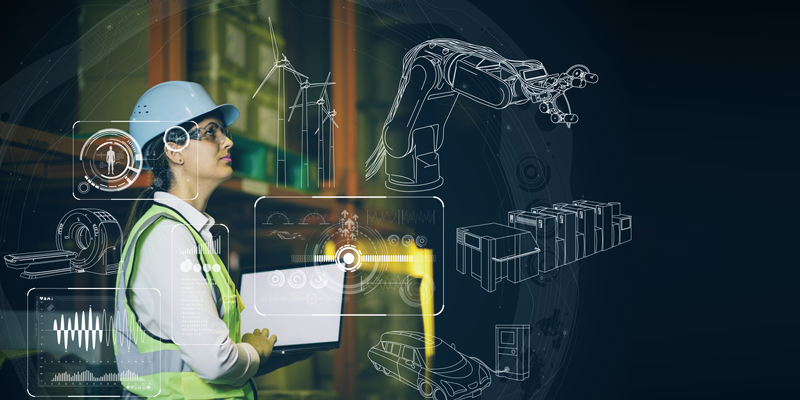
Vodafone
View Brand PublisherMobility and transportation: the opportunity for intelligent logistics
A range of digital innovation is sweeping across the transportation and logistics sector, covering everything from ridesharing and smart cars to intelligent logistics and traffic monitoring apps. The touted benefits include commuter convenience, new revenue streams, lower transactional costs, and even environmental sustainability via reduced carbon footprints.
Meetups and conferences on the topic of mobile transportation regularly feature startups, tech firms, automobile companies, NGOs, government agencies, investors, courier companies, and startup accelerators.
Connected devices
In addition to connected consumers and cars, the Internet of Things (IoT) boom is entering the world of transportation via automated multi-modal route-planning services, shared bike exchanges, corporate car pooling, courier aggregation, connected traffic cameras, and even smart road dividers.
A range of startups are unleashing innovation and unlocking value in the logistics sector in India. These include Chennai-based FreightBro (data-driven predictions), Bengaluru-based BlackBuck (inter-city full truckload marketplace), GoBOLT (reliable documentation), LoBB (app-based truck tracking), and Mera Transport.
Leapfrogging solutions: emerging economies
Countries without much legacy infrastructure stand to gain the most by leapfrogging directly into digital and mobile solutions for logistics. According to the All India Motor Transport Congress, there are close to 12 million trucks in India. The road freight volume in India is forecast to be 2,211.24 billion freight tonne kilometre, growing at 4.7 percent.
According to the report ‘Logistics Market in India 2015-2020’ by market researcher Novonous, the entire logistics industry in India is pegged at $300 billion, growing at a CAGR of 12.17 percent by 2020. About 90 percent of trucks in India belong to single-truck owners, which makes the sector ripe for digital connectivity and aggregation platforms.
The situation is similar in Africa. For example, Kenya’s Senga operates an on-demand platform connecting shippers and road-based transporters of goods. Registered users are listed on Senga, and are matched with those who need transportation. The service also tracks routes and movement of goods across cities. The end result is better visibility, transparency, affordability, and optimisation of fuel consumption.
Bifasor is an online professional network for service providers and shippers in Africa's transport and logistics industry. It has been described as the ‘next Uber’ for Africa's transport and logistics sector. The target ecosystem is shippers, carriers, freight forwarders and warehouse operators. Contact information and realtime communication are visualised by an interactive dashboard. Participating members can offer, find, stock and deliver shipments online.
Ordering and delivery services provider Sokowatch operates in Kenya and Tanzania. It estimates that more than 84 percent of all consumer purchases made in African cities are done through small, independent shops and account for over $180 billion in sales every year. Founded in 2016, Sokowatch offers on-demand distribution to independent retailers by placing orders via SMS. The platform covers order processing, routing, and agent-tracking systems.

The e-commerce boom
Expenditure on logistics in India stands at 13 percent of the GDP as compared to 18 percent in China and 8.5 percent in the US, according to a Kalaari report, ‘The India Opportunity.’ Indian e-commerce has touched a GMV of $15 billion and has given rise to a new category of e-commerce-focussed logistics companies, such as Delhivery and Ecom Express. “Logistics will be at the heart of India’s internet growth story,” according to Vani Kola, Managing Director, Kalaari Capital.
In the case of larger players, 70 percent of deliveries for Amazon and Flipkart are executed through their in-house logistics entities. Amazon’s logistics network spans massive warehouses, smaller sorting hubs, and a long-haul, mid-mile and last-mile delivery network that even includes transport by boat. Flipkart is setting up a large logistics park near Bengaluru to become the linchpin of the company's supply chain in the country.
Live pricing
One advantage of realtime connectivity is innovative services like live pricing. Founded in 2015, online logistics platform Trukky has developed an online solution for truck hiring and tracking. With rate index, live pricing and a three-step booking feature, it aims to bring in more ease and transparency in the trucking ecosystem.
This tackles consumer apprehensions about being overcharged and having no service delivery guarantee. Customers have the option of booking a full truckload or part load. Direct connectivity helps remove unnecessary intermediary layers such as brokers, thus passing the savings onto customers. Trukky claims a network of over 5,000 truckers, with more than 2,000 clients from FMCG, cement, and chemical sectors.
The humane angle
Ultimately, effective logistics is not just about technology but better living conditions for the truck drivers. Trucking is a backbone of India’s economy, but truck drivers live in appalling conditions, according to Deepa Garg, founder of Rivigo. The startup has developed a solution based on pit-stops for truckers and a baton-based relay. This not only leads to efficient and safer transportation, but also results in an improved lifestyle for the truck drivers. They can return home each day, lead healthier lives, and spend more time with their families.
Rivigo has a fleet of around 3,000 containerised trucks, and a network of over 70 pit stops across the country. Each driver (‘pilot’) needs to cover around 250 km or about five hours between pit stops. Location, routes and driver allocation are tracked via IoT and reported on an app, which is available in 11 Indian languages. Clients for services like refrigerated shipping include e-grocer BigBasket.
Another company with a focus on human empowerment and inclusion is Wow Express, which focuses on first mile logistics (from seller to e-tailer warehouse) as well as health-related logistics for the health sector, for instance transporting lab samples. Its ‘service marshals’ include women nurses, who know how to handle these samples, and how to store them in special temperature-controlled bags.
Solutions for scale
Mobile operators are uniquely poised to offer regional and global connectivity solutions for the logistics sector. These realtime visibility solutions can help tackle delays, productivity issues, accidents, diversion, theft, and damage. Vodafone’s SuperIoT platform is one such example with its end-to-end IoT solutions that enable vehicle and asset tracking.
Governments can also improve the quality of logistics via measures like budgetary outlays, foreign direct investment regulations, clarity in classification of logistics players, tax structures, and requirements for open data sharing. This covers truck fleets and the warehousing sector.

Ecosystem
A number of players in the startup ecosystem are bringing transportation stakeholders together, such as TiE Bangalore and the accelerator NUMA. For example, the Data City initiative promotes data sharing within urban areas for better urban services. TiE Bangalore has helped launch a range of centres of excellence with the Karnataka government, in domains such as IoT, data science, AI, and cyber-security; a Centre of Excellence in Transportation-Tech would also help.
Other accelerators offering support for logistics startups include Seedstars Academy (Nigeria, Ivory Coast), Mara Foundation (East Africa), Wennovation (Nigeria), and GE Garages. At the macro level, a single government agency or a single corporation (or even an industry alliance) cannot design and build integrated broad-based transportation solutions – only a multi-stakeholder ecosystem approach will work.
An innovative example in this regard is the Mobility Open Lab, initiated and coordinated by Michelin. It includes a range of international corporations, startups, public authorities, cities, academic institutions and NGOs. There are events and moderated ‘communities of interest’ for developing innovative and sustainable mobility solutions such as parking space management.
In sum, large mobile operators and agile startups are eyeing the logistics market from both ends of the spectrum. The challenge for new logistics players is to deploy technology solutions, while also sustainably raising and managing working capital, sums up Naganand Doraswamy, founder of IdeaSpring Capital.
The cost of logistics in India is higher than the US and China. India can save close to $50 billion if logistics costs drop to 9 percent of the GDP from 13 percent today, according to ASSOCHAM. Digital solutions in logistics is one major enabler to unlock this value.
To learn more on how to take your startup to the next level, visit Vodafone’s Ready Startup microsite.











